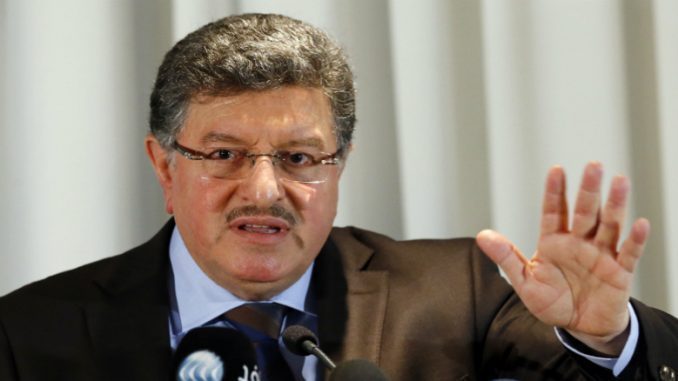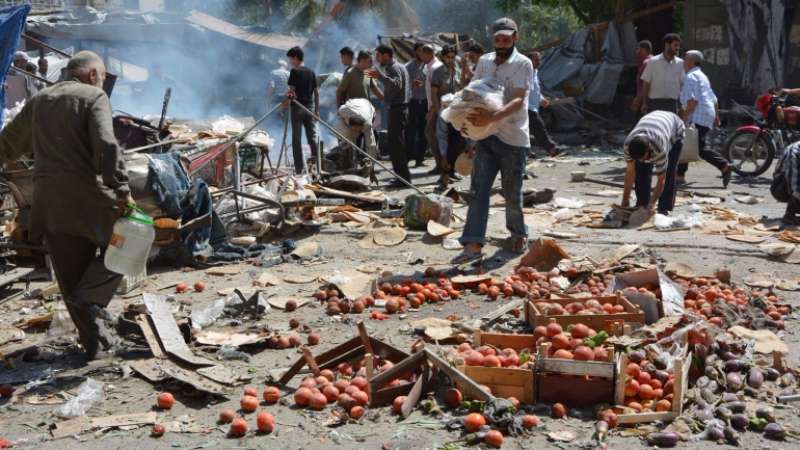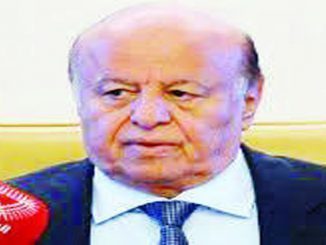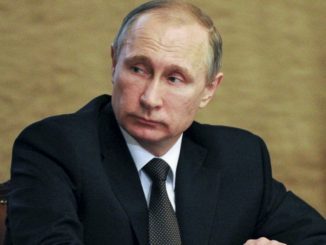
Syrian opposition’s delegation to the new round of peace talks in Geneva demanded to have direct discussions with Assad regime’s delegation, as the UN envoy asked them to cooperate to find a way out of almost six years of war.
Russia, Iran, and Turkey said they were ready to help broker a Syria peace deal, and organized peace talks meeting in Kazakhstan on January 23.
The first day of the talks was focused on ways to strengthen the ceasefire. It ended with tension as both parts traded blames over truce breaches. In addition, the opposition refused to have direct negotiations with Assad regime.
The talks have ended with Russia, Turkey, and Iran making a joint statement about the consequences of the talks and agreeing on a mechanism to support a delicate ceasefire and to support a new round of peace talks in Geneva.
The second round of Astana talks was held in Kazakhstan’s capital on February 15-16. It didn’t have a final statement, but Turkey, Russia, and Iran issued a mutual agreement indicating that all sides have agreed “there is no military solution to the Syrian conflict and it can only be solved through the diplomatic implementation of U.N. Security Council Resolution Number 2254 in its entirety.”
The Syria peace talks had been planned to begin in Geneva on Feb. 8, but the UN envoy for Syria, Staffan de Mistura, said that he had decided to delay the UN-sponsored talks until February 23. in order to take advantage of the results of Astana talks.
However, many predicted the talks seems to be failing before they start as Assad regime kept breaching the so-called truce and killing more civilians while the global powers have low expectations for this meeting.
Direct discussions
The UN special envoy for Syria, Staffan de Mistura, addressed the both delegations asking them to work together to help in ending the crisis in the country.
“I ask you to work together. I know it’s not going to be easy to end this horrible conflict and lay the foundation for a country at peace with itself, sovereign and unified,” de Mistura told the delegates sitting opposite each other on the stage of the U.N. assembly hall in Geneva.
The opposition’s delegation reacted by demanding direct talks with the regime’s delegation.
“We ask for direct negotiations … It would save time and be proof of seriousness instead of negotiating in [separate] rooms,” Salem al-Meslet, spokesman for the High Negotiations Committee (HNC) umbrella group, told reporters.
During three previous rounds of talks in Geneva last year, the two sides never sat down at the same table, instead of leaving UN mediator Staffan de Mistura to shuttle between them.
“If the regime’s side is here for serious talks, it shouldn’t hesitate or run away from face-to-face talks. If the purpose of the talks is to bring peace to Syria and to stop the bloodshed, we are ready for it,” Yahya al-Aridi, advisor to the HNC, Syria’s main opposition umbrella, said as the talks kicked off at the United Nations headquarters.
Still, the opposition official said the rebels would not quit the talks should the Syrian government delegation refuses direct negotiations.
“We are ready to go anywhere in the world in order to bring Syria back to life,” said Aridi.
Political transition demanded
The lead negotiator for the opposition said the Geneva talks should prioritize finding a political transition, something he said Assad’s side did not want.
“If Staffan is serious he has to stick to the first subject on the agenda which is a political transition that is acceptable to the Syrian people,” Nasr al-Hariri told reporters.
But Russia’s envoy to the United Nations in Geneva, Alexei Borodavkin, said demands from rebels and their Western and Arab backers for Assad to step down were “absurd”.
Hariri criticized the role played by Iran and Iranian-backed militias, which – with Russia – are vital Assad allies.
“Iran is the main obstacle to any kind of political deal,” Hariri said, accusing Tehran of being responsible for violations of the ceasefire.
Salim al-Muslit said previously the opposition was sticking to its position that President Bashar al-Assad can have no role in the transition, saying “the heavy price paid by the Syrian people” would have been wasted if he remained in power.
Muslit said the HNC wanted to start the negotiations by discussing a governing body to oversee the transition.
“We want direct negotiations, we want to save time, we want a quick end to the suffering of the Syrian people,” he said.
“We now want to get into the essence of the political process – the discussion of the political transition – and what the Geneva 1 communique stipulated about the formation of a transitional body with full powers,” Muslit added.
little hope for the talks
However, officials from the opposition delegation expressed little hope for the talks.
“When the adherence to the ceasefire is not there,” and when there are “games being played at the level of international terms of reference to the political transition and a constitution […] then the negotiations are not encouraging,” Yahya al-Aridi said.
“Things are getting complicated further and further, with conflicting agendas. Not only from the main two banks of the conflict but also within our bank,” he said.
“There are no solutions in sight now. The reality on the ground is getting worse,” Fares Bayoush, a Free Syrian Army commander, said.
Omar Kouch, a Syrian analyst, said that while the presence of a ceasefire makes this round of talks markedly different, “there are no indications that the fourth Geneva talks will be serious about finding a solution”.
Kouch said the chances of reaching a solution are slim, citing the continued government offensives on several areas across Syria, the absence of the dominant Syrian Kurdish faction – the Democratic Unity Party (PYD) – at the negotiating table and major divisions within the opposition.
“As in every round of talks, we start with a lot of hope to find a solution, but then the talks are over and nothing is accomplished. In fact, things get worse,” he said.
With both sides seemingly unwilling to make political concessions, it is unclear how the negotiations could bridge the divide and find a solution.
Still, the Syrian opposition is expected to press for the consolidation of the ceasefire, the release of prisoners, the lifting the blockades over besieged areas and securing a political transition from Assad’s government.
“The main thing is that there is no submission. We are trying very hard, to decrease the losses,” said Aridi.
The Syrian crisis began as a peaceful demonstration against the injustice in Syria. Assad regime used to fire power and violence against the civilians and led to armed resistance. 450.000 Syrians lost their lives in the past five years according to UN estimates, and more than 12 million have lost their homes.



